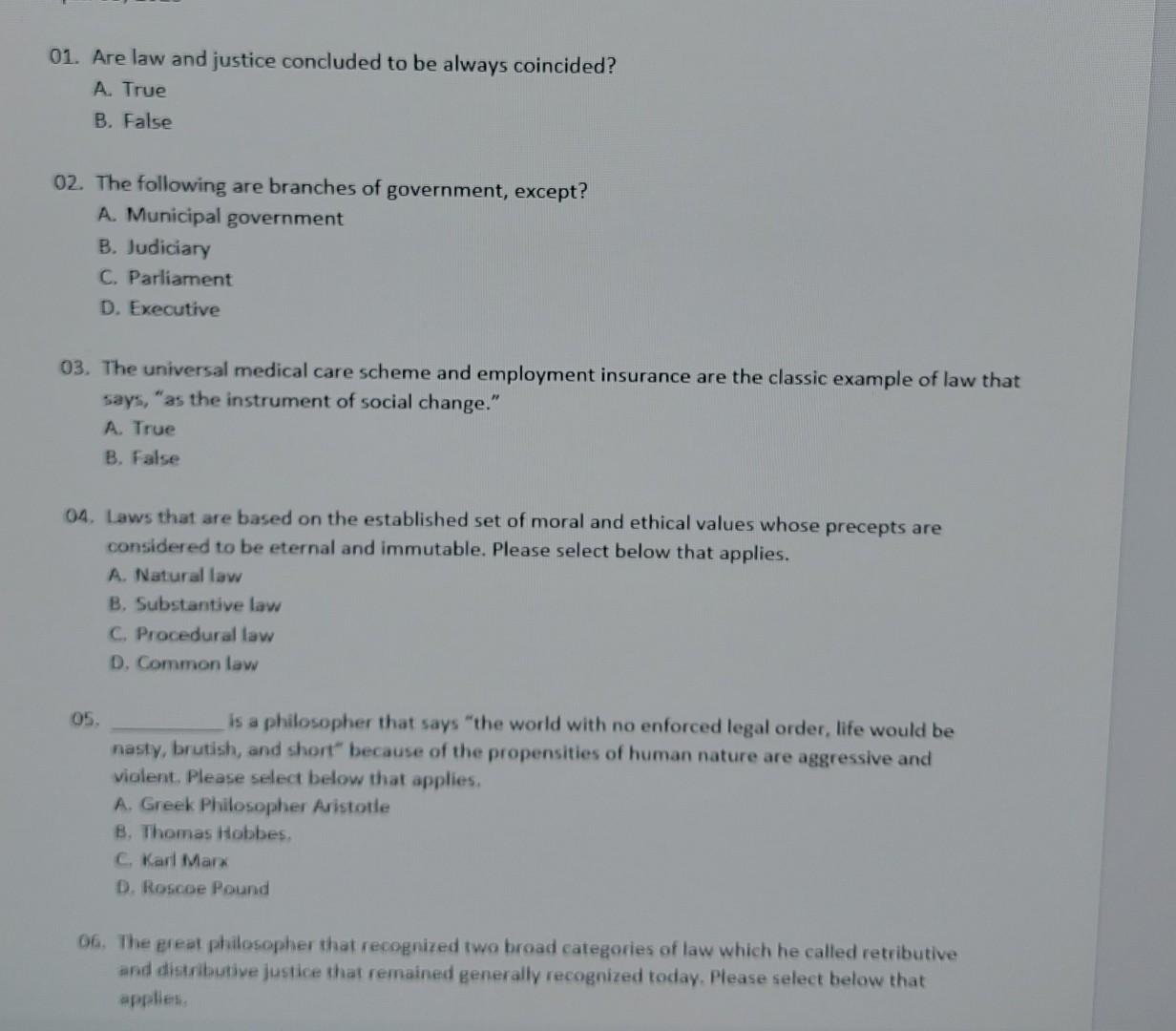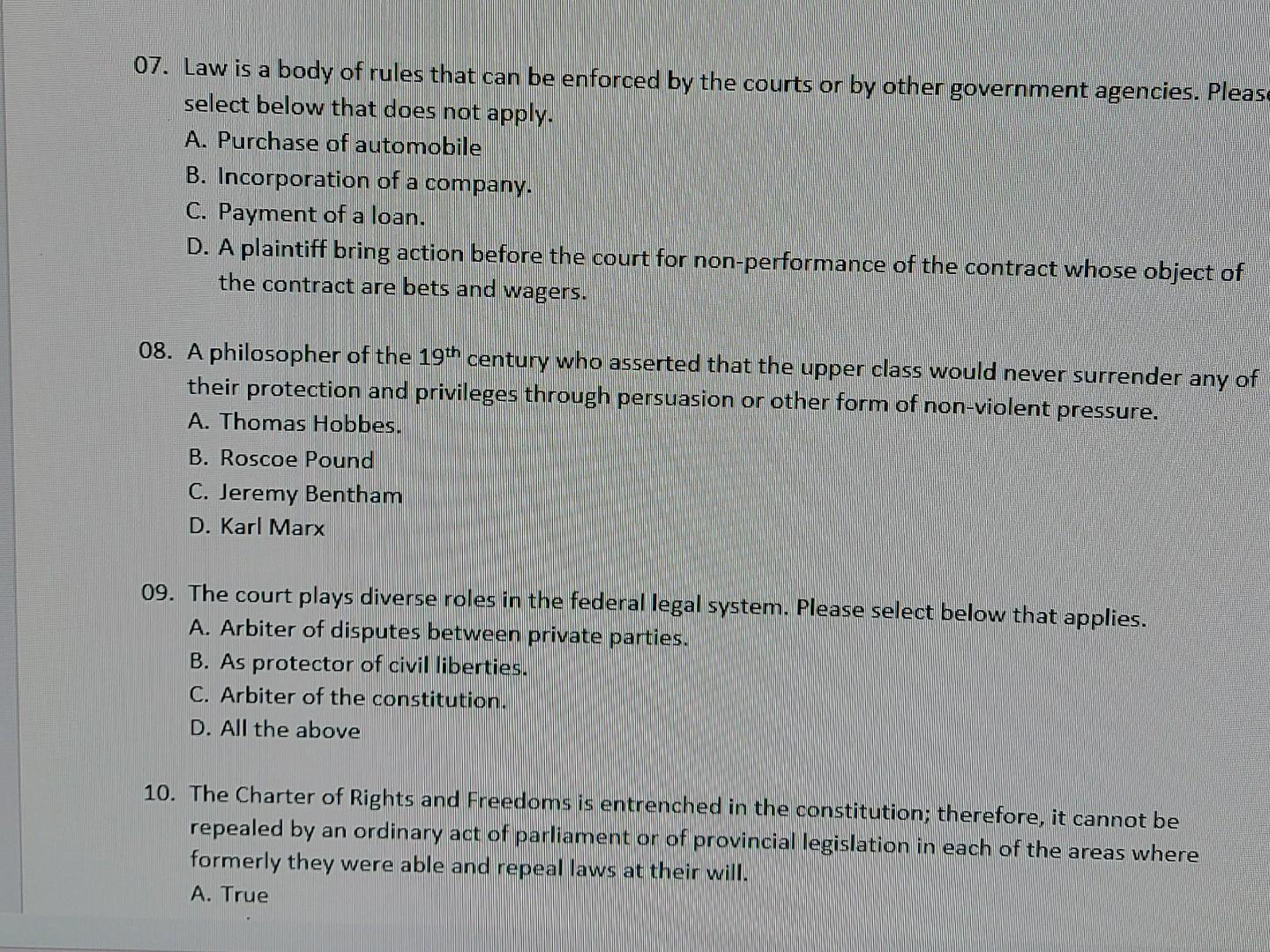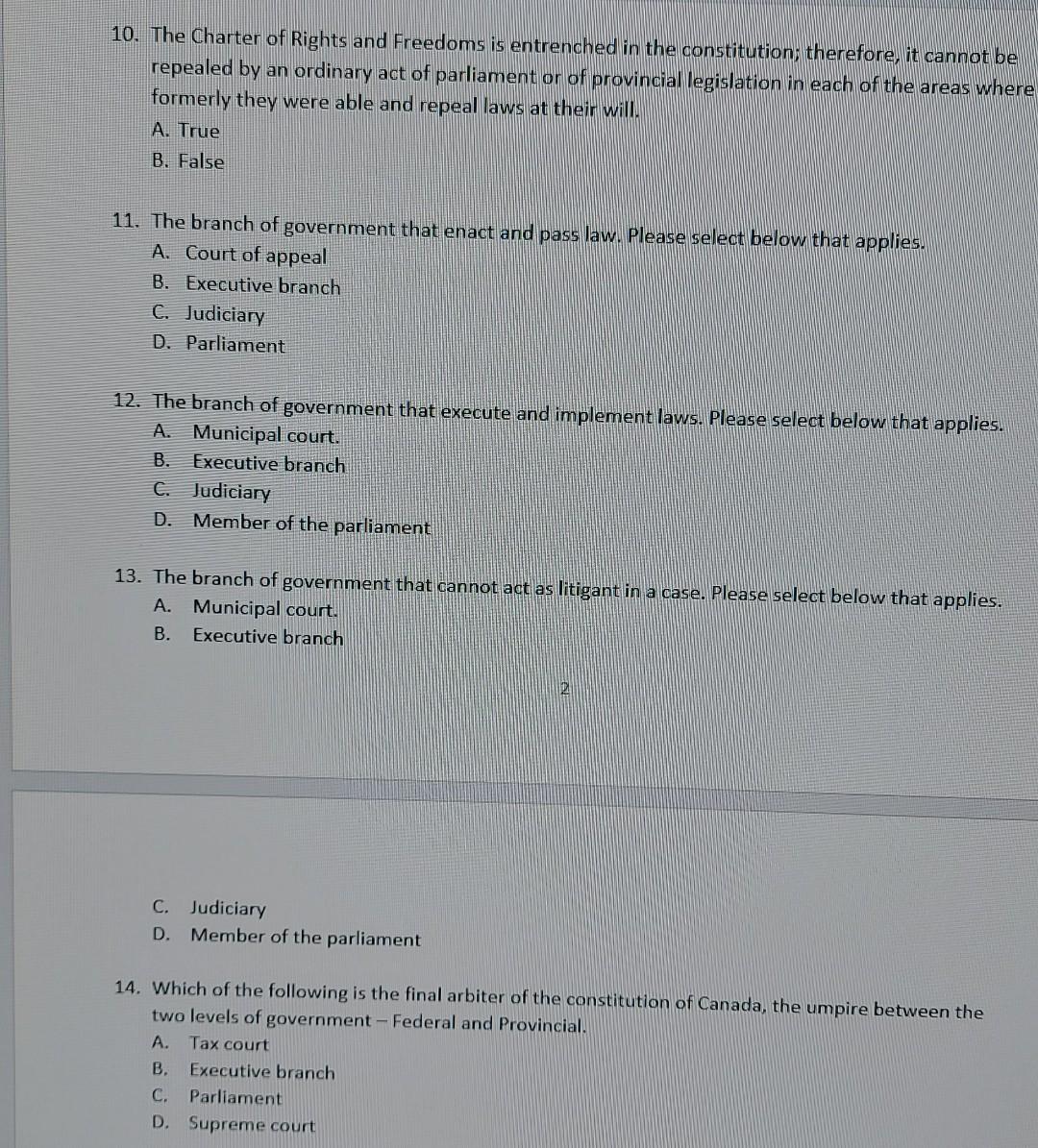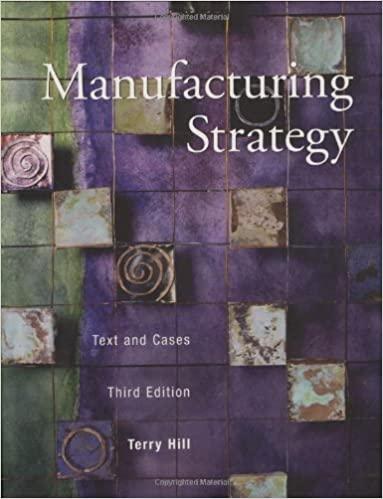


01. Are law and justice concluded to be always coincided? A. True B. False 02. The following are branches of government, except? A. Municipal government B. Judiciary C. Parliament D. Executive 03. The universal medical care scheme and employment insurance are the classic example of law that says, "as the instrument of social change." A. True B. False 04. Laws that are based on the established set of moral and ethical values whose precepts are considered to be eternal and immutable. Please select below that applies. A. Natural law B. Substantive law C. Procedural law D. Common law 05. is a philosopher that says "the world with no enforced legal order, life would be nasty, brutish, and short" because of the propensities of human nature are aggressive and violent. Please select below that applies. A. Greek Philosopher Avistotle 8. Thomas itobbes. C. Karl Mar* D. Roscoe Pound 06. The ereat phailosopher that recognized two broad categories of law which he called retributive and distributive justice that remained generally recognized today. Please select below that applies. 07. Law is a body of rules that can be enforced by the courts or by other government agencies. Plea select below that does not apply. A. Purchase of automobile B. Incorporation of a company. C. Payment of a loan. D. A plaintiff bring action before the court for non-performance of the contract whose object of the contract are bets and wagers. 08. A philosopher of the 19th century who asserted that the upper class would never surrender any of their protection and privileges through persuasion or other form of non-violent pressure. A. Thomas Hobbes. B. Roscoe Pound C. Jeremy Bentham D. Karl Marx 09. The court plays diverse roles in the federal legal system. Please select below that applies. A. Arbiter of disputes between private parties. B. As protector of civil liberties. C. Arbiter of the constitution. D. All the above 10. The Charter of Rights and Freedoms is entrenched in the constitution; therefore, it cannot be repealed by an ordinary act of parliament or of provincial legislation in each of the areas where formerly they were able and repeal laws at their will. A. True 10. The Charter of Rights and Freedoms is entrenched in the constitution; therefore, it cannot be repealed by an ordinary act of parliament or of provincial legislation in each of the areas where formerly they were able and repeal laws at their will. A. True B. False 11. The branch of government that enact and pass law. Please select below that applies. A. Court of appeal B. Executive branch C. Judiciary D. Parliament 12. The branch of government that execute and implement laws. Please select below that applies. A. Municipal court. B. Executive branch C. Judiciary D. Member of the parliament 13. The branch of government that cannot act as litigant in a case. Please select below that applies. A. Municipal court. B. Executive branch C. Judiciary D. Member of the parliament 14. Which of the following is the final arbiter of the constitution of Canada, the umpire between the two levels of government - Federal and Provincial. A. Tax court B. Executive branch C. Parliament D. Supreme court









